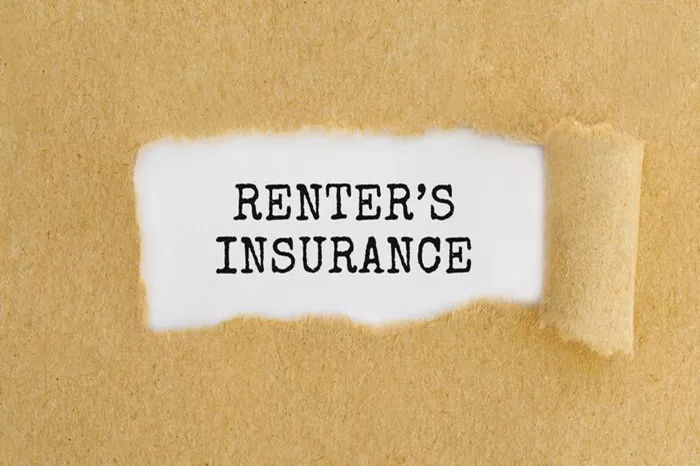Renters insurance is a crucial component of financial security for tenants, offering protection against unforeseen events such as theft, fire, or liability claims. However, with numerous companies vying for consumers’ attention, selecting the best provider can be a daunting task. This essay aims to offer a detailed comparison of leading renters insurance companies, evaluating their strengths and weaknesses based on various factors such as coverage options, pricing, customer reviews, claims process, financial stability, additional benefits, policy customization, and industry recognition.
Company Comparisons
State Farm
- Strengths: State Farm boasts a solid reputation for customer service and a wide network of agents, offering personalized assistance to policyholders. Their policies also cover a broad range of perils, including theft, fire, and water damage.
- Weaknesses: Despite its strengths, State Farm tends to have slightly higher premiums compared to some competitors, which may deter budget-conscious renters.
Allstate
- Strengths: Allstate stands out for its comprehensive coverage options and innovative features such as HostAdvantage®, which extends liability protection to Airbnb hosts. The company also offers numerous discounts for bundling policies and installing safety devices.
- Weaknesses: Some customers have reported dissatisfaction with Allstate’s claims process, citing delays and difficulties in communication with representatives.
Lemonade
- Strengths: Lemonade revolutionizes the insurance industry with its hassle-free digital platform and transparent business model. They offer competitive rates and donate unused premiums to charitable causes, appealing to socially conscious renters.
- Weaknesses: Lemonade’s coverage options may not be as extensive as traditional insurers, and their availability is limited to certain states.
Coverage Options
Personal Property: All reviewed companies provide coverage for personal belongings, including furniture, electronics, and clothing, against perils such as theft, fire, and vandalism.
Liability: Liability coverage, which protects renters against lawsuits for property damage or bodily injury, is a standard feature across all policies.
Additional Living Expenses: In the event of a covered loss rendering the rented property uninhabitable, reimbursement for temporary housing and living expenses is available from all insurers.
Price Analysis
State Farm and Allstate typically offer competitive rates, with premiums influenced by factors such as location, coverage limits, and deductible choices. Both companies provide discounts for various factors like bundling policies, installing safety devices, and maintaining a claims-free history.
Lemonade’s digital-first approach allows for lower overhead costs, translating to affordable premiums for renters. Additionally, their flat-rate pricing simplifies the quoting process, eliminating the need for complex calculations based on individual risk factors.
Customer Reviews and Ratings
State Farm and Allstate generally receive positive feedback for their customer service and claims handling, reflected in high ratings from reputable sources like J.D. Power and Consumer Reports.
Lemonade earns praise for its user-friendly interface and quick claims processing, garnering favorable reviews on platforms such as Trustpilot and Better Business Bureau.
Claims Process
State Farm and Allstate offer multiple channels for filing claims, including phone, online, and through their mobile apps. Both companies strive to streamline the process, providing prompt responses and dedicated claims representatives to guide policyholders through each step.
Lemonade’s claims process is entirely digital, allowing renters to submit claims quickly and conveniently through the Lemonade app. The company utilizes AI technology to expedite claim reviews, aiming for near-instant payouts in many cases.
Financial Strength
State Farm and Allstate boast strong financial ratings from agencies like A.M. Best and Standard & Poor’s, indicating their ability to fulfill claims obligations even during economic downturns or catastrophic events.
Lemonade, although a relatively new player in the insurance market, has gained traction with investors and maintains adequate reserves to cover anticipated claims.
Additional Benefits
All reviewed companies offer various perks to enhance the policyholder experience, such as mobile apps for managing policies and accessing resources on risk prevention. State Farm and Allstate provide optional endorsements for additional coverage needs, such as identity theft protection or valuable items insurance.
Lemonade distinguishes itself with its Giveback program, which redistributes unclaimed premiums to charitable organizations chosen by policyholders. Additionally, their digital platform offers AI-powered assistance and educational resources to promote risk awareness and prevention.
Policy Customization
State Farm and Allstate offer flexibility in tailoring coverage limits and deductible amounts to align with renters’ individual needs and budget constraints. Policyholders can also add optional endorsements or riders to enhance protection for specific risks.
Lemonade’s simplified policy structure allows for easy customization through intuitive sliders and toggles on their app, empowering renters to adjust coverage limits and explore optional add-ons seamlessly.
Industry Awards and Recognition
State Farm and Allstate have received numerous accolades and industry awards for excellence in customer service, innovation, and financial stability. These recognitions validate their commitment to meeting renters’ insurance needs and maintaining industry-leading standards.
Lemonade’s disruptive approach to insurance has garnered attention from industry experts and media outlets, earning accolades for its innovative business model and technological advancements in claims processing.
Conclusion
In conclusion, selecting the best renters insurance company involves weighing various factors such as coverage options, pricing, customer satisfaction, claims experience, financial stability, additional benefits, policy customization, and industry recognition. While State Farm and Allstate offer comprehensive coverage and established reputations, Lemonade presents a compelling alternative with its digital convenience and philanthropic initiatives. Ultimately, renters should assess their priorities and preferences to choose the insurer that best aligns with their needs and values.
FAQs about Renters Insurance
1. Which one is the best renters insurance?
Determining the “best” renters insurance company depends on various factors such as individual needs, budget, and preferences. Companies like State Farm, Allstate, and Lemonade are often considered among the top choices due to their comprehensive coverage options, competitive pricing, and strong customer service ratings. It’s essential to compare policies and reviews to find the best fit for your specific circumstances.
2. What company has the cheapest renters insurance?
The cost of renters insurance can vary depending on factors such as location, coverage limits, deductible amount, and eligibility for discounts. However, Lemonade is often recognized for its affordability, thanks to its digital-first approach and streamlined business model. By leveraging technology and minimizing overhead costs, Lemonade is able to offer competitive rates for renters insurance.
3. How much is renters insurance ok?
The cost of renters insurance varies depending on several factors, including the location of the rental property, the amount of coverage needed, the deductible chosen, and any additional endorsements or riders added to the policy. On average, renters insurance typically ranges from $10 to $30 per month for basic coverage. However, it’s essential to obtain personalized quotes from insurance providers to determine the exact cost based on your individual circumstances.
4. Why is Lemonade insurance so cheap?
Lemonade insurance stands out for its affordability due to its innovative business model and digital approach. By operating primarily online and utilizing artificial intelligence for various processes such as underwriting and claims handling, Lemonade is able to reduce administrative costs and pass those savings onto policyholders. Additionally, Lemonade’s flat-rate pricing simplifies the quoting process, eliminating the need for complex calculations based on individual risk factors, which helps keep premiums low.



















